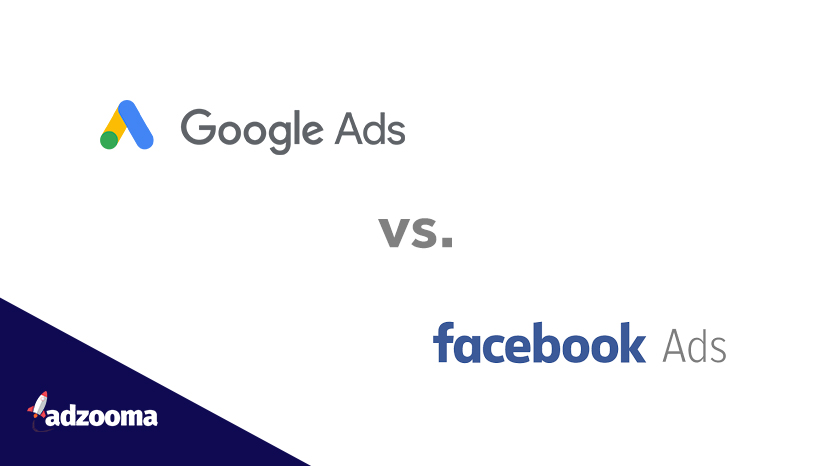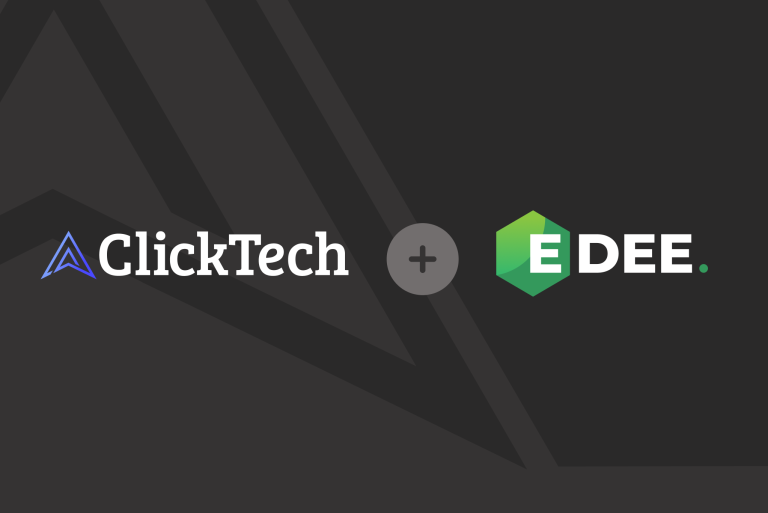Google and Facebook share many similarities and often take cues from one another. Like when Facebook created their own parent company (also confusingly called FACEBOOK). They also offer their own PPC platforms – Google Ads and Facebook Ads.
As strong competitors in a highly competitive market, the frequently-asked question remains: which is better – Google Ads or Facebook Ads. In this article, we’ll look at the differences and see how they fare against each other.
The differences between Google Ads and Facebook Ads
When you’re looking for ways to promote your business online, Google Ads and Facebook Ads are the top 2 contenders as both platforms pull in billions of users through their online advertising.
Most companies will be looking to allocate their budget on one of the platforms, but the tricky part can be deciding on which of the two platforms will be suitable based on the audience, goals and the kind of results that need to be achieved.
While Google Ads appear in Google search results and across websites in Google’s Ad network, Facebook Ads are displayed across Facebook, Instagram, and other sites in the social media platform’s network.
Pro tip: If you care less about which network to choose and more about which audience to approach, you can use a tool such as the self-serve Zeropark Ad Network, which offers ad formats such as push notifications, pop, and domain redirect ads on both platforms.
How does Google Ads work?
Google Ads is a PPC advertising platform that runs advertisements that are paid for by businesses. It works by targeting users who are searching for products or services that your business might offer. The role of Google here is to drive traffic to the site and advertisers will only pay when a user clicks on their ad.
How does Facebook Ads work?
Facebook Ads work in the same way in the fact they are paid for promotions like Google except these are shown to users who are not actively searching for a specific product or service – they will simply appear in their feed as they’re scrolling down the page. This is great for targeting social media users while they’re connecting with friends and casually looking at content that interests them. By tracking social behaviour when on this platform it can make it very useful for ads to be targeted for that particular user.
Audience/reach
Google has the largest audience potential of any advertising platform, processing over 3.5 billion searches a day and 1.2 trillion searches a year worldwide. Google Ads also reaches over 90% of internet users and although social media is extremely popular, not platform can rival the reach that Google offers – not even Facebook.
But Facebook is still a popular site, with over 2.6 billion monthly active users as of the first quarter of 2020. It also performs well in certain demographic categories, meaning that audience targeting is very important and likely to be where you spend your time when creating a Facebook campaign.
Cost
On average, CPCs (cost-per-click) can work out as less on Facebook Ads than Google Ads ($0.97 vs $1-$2 on the search network). However, there are cases where Google Ads works out cheaper when using display ads.
Facebook Ads also offers comprehensive audience targeting options which makes it a great choice for advertisers who have limited budgets and are needing to build brand awareness.
Google Ads can be more costly than Facebook Ads but there’s more purchase intent with Google Ads, which might convert more visitors. Facebook tends to be more cost-efficient as their low-cost, high ROI model makes it a very likeable platform for small businesses that need to make their limited advertising budgets stretch further.

Types of targeting
Both platforms offer demographic and behaviour targeting but keyword targeting is one of the most popular strategies for Google Ads, especially when using the Google Search Network. If businesses want their ads to appear in relevant search results, they must choose the best keywords – then those keywords determine where the ads appear in search results.
With Google Ads you can create campaigns that will only appear when users search a keyword that they want to advertise for. For an even more targeted approach, local businesses can target people searching for their keywords in specific geographic regions.
Facebook Ads on the other hand, excels when it comes to targeting people based on the behaviours and patterns you choose through their targeting profile. Unlike Google Ads, it is not based on a user’s search query. Not only does it provide a wide range of targeting options based on the usual demographics, it can be much more specific in areas such as relationship status, job type, purchasing behaviours and interests.
Ad types
Google Ads is a more data-focused interface and the ad types include:
- Text Ads
- Responsive Search Ads
- Image Ads
- App Promotion Ads
- Video Ads
- Product Listing Ads
- Showcase Shopping Ads
- Call-Only Ads
Facebook Ads has various types of options to choose from, that include formats such as image, video, slideshow and carousel, collection, and instant experience, that can be displayed through the following methods:
- Facebook Feed/Stories
- Instagram Feed/Stories
- Facebook Marketplace
- Video Feeds
- Right-hand column
- Messenger inbox
Ease of use
Usability can often be a big factor when it comes to choosing where ads are placed. Facebook is easy to navigate using it’s basic features but can become less functional when moving on to use the more advanced features. Google has a much more data focused interface that can be confusing to operate, yet is an easier platform to manage once mastered.
Both platforms offer support to businesses running ads, however, they both differ in the level of service provided. Google provides support through a call centre and emails and Facebook offers an online chat and email service, that isn’t as responsive.
The verdict
If you are a new business and need to make a hard choice based on getting more sales right now, a lead campaign on Google will provide you with the better return on investment, based on a sales outcome.
They’ll click on your ad and see what you have to offer. If you’re a good fit for their needs, you can earn more conversions for your business. With remarketing on Google Ads, you can even bring back users that previously had an interest in your product or service, but weren’t quite ready to convert.
On the whole Google Ads is a solid way to secure immediate sales, whereas Facebook Ads is best for lead generation and brand awareness.
When it comes to which one is best, then there is no clear winner. It’s very dependent on what a business wants from an advertising campaign and the main focus of their digital marketing strategy.




